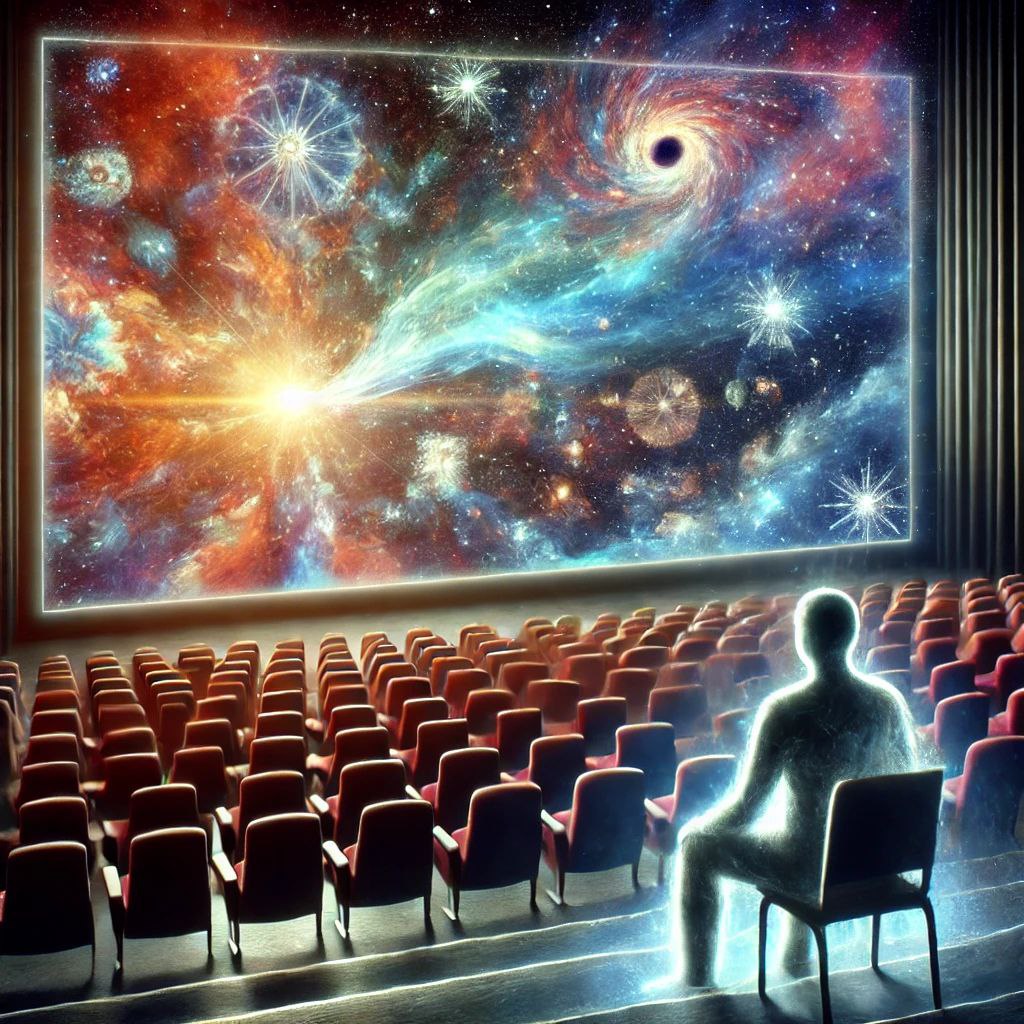Do humans truly control their lives, or are they merely observers of a predetermined script? The Observer Theory challenges the notion of free will, proposing that our actions are dictated by forces beyond conscious control. Yet, within this determinism lies a profound paradox of observation, agency, and meaning.

The Illusion of Control
- Determinism and Causality
Every action is shaped by prior causes: biological instincts, societal norms, and environmental stimuli. Neuroscientific studies, such as Benjamin Libet’s experiment, show that neural activity precedes conscious decisions, suggesting our choices are predetermined by brain processes before we become aware. - Genetics and Evolution
Human behavior is deeply rooted in evolutionary programming. Traits like fear, cooperation, and ambition evolved to ensure survival. Studies on twins raised apart reveal that even personal preferences are heavily influenced by genetic predispositions. - Psychological and Social Conditioning
From birth, cultural norms and social structures shape how we think and act. Philosopher Pierre Bourdieu’s concept of “habitus” illustrates how ingrained societal expectations guide decisions, often unnoticed. Even rebellion against norms is often shaped by alternative cultural scripts. - The Role of the Unconscious
Modern psychology highlights how unconscious biases and heuristics shape our decisions. Implicit Association Tests reveal hidden prejudices, while cognitive shortcuts influence judgments without conscious realization.
The Observer’s Paradox
Humans are both actors, experiencing life as though in control, and observers, witnessing events unfold beyond their influence. This duality parallels David Chalmers’ “hard problem of consciousness,” emphasizing the mystery of subjective experience. While we feel autonomous, much of life operates outside our awareness.
Freedom Within the Illusion
- The Utility of Free Will
Believing in free will motivates growth and innovation. Research shows that individuals who perceive control are more resilient and productive. Like the placebo effect, belief in agency has tangible benefits. - Reflection and Adaptation
Self-awareness enables humans to analyze and reshape behavior. Cognitive Behavioral Therapy demonstrates how reflection can alter thought patterns, offering a sense of agency within constraints. - Meaning in Determinism
Philosophers like Nietzsche and Camus suggest that accepting life’s determinism allows for deeper fulfillment. Nietzsche’s “amor fati” encourages embracing fate, while Camus’ “absurdism” urges us to create meaning despite life’s inherent limits.
The Observer as Creator
While external forces dictate events, humans assign meaning to their experiences. Viktor Frankl’s Man’s Search for Meaning illustrates how even in suffering, individuals can choose their perspective. Neuroscience supports this through neuroplasticity, showing how observation and intention reshape the brain.
Conclusion: A New Perspective on Freedom
The Observer Theory challenges us to embrace life’s paradox: to act as though we control our destiny while recognizing the limits of our agency. Whether as actors, observers, or both, our ability to create meaning enriches the human experience. Freedom may not lie in control but in our capacity to reinterpret life’s story.
Are we the authors of our fate or merely its audience? Perhaps the answer lies in how we engage with the unfolding narrative.

